Women & Girls
Gender equality is not only a fundamental human right, but a necessary foundation for a peaceful, prosperous, and sustainable world.
Empowering women and girls through human rights education is the pathway to community-led sustainable development that ensures dignity for all.
There are currently many rural communities where social norms dictate that girls be…

Withdrawn from school

Married against their will in their early teens

Voiceless in the marital relationship and in community decision making

Accepting of intimate partner violence

Restricted in movement and contact with others
Change is possible through a holistic human rights based educational approach to community-led development.
A community-driven and gender-equitable approach to governance can be transformative for developing nations. Amplifying the voices of women and girls — and including them in all areas of public life — is key to sustainable development.
The change is
LASTING
The effects are
TRANSFORMATIVE
The impact is
SCALABLE
The Evidence
When communities form a collective understanding of human rights and agree that…
all women and children have the same universal human rights as men — including the right to live in safety and the right to access healthcare…

commit to the abandonment of female genital cutting and forced / child marriages

participate in decision-making, and advocate for their rights and the rights of their children.

in joint decision making within couples (i.e. having a say regarding matters such as birth spacing and sending their children to school)
Since 1991, Tostan has empowered thousands of communities to achieve breakthrough results in 8 African countries.

Participants in Tostan’s three-year Community Empowerment Program (CEP) include both men and women who learn about their human rights, and most important, to embrace their responsibility to uphold the rights of others.
CEP participants also develop the practical skills that will help them speak in public and become changemakers. Such educational experiences are facilitated through a variety of approaches, including song, storytelling, and dance.
Women — who make up the majority of each class — can then pass these teachings and skills onto the next generation.

Strong voices for change
During the program’s sessions, women, most of whom have never spoken in front of a man they are not related to, gain confidence as they are encouraged to speak up, first in small groups, then before the whole class, and eventually in front of the entire village.
Community Management Committees, the majority of whom must be women, are formed early on in the program. These newly empowered leaders sit side by side with the village chief and the religious leader of the community, bringing women into the circle of power, often for the first time. As villages make inclusive decisions about which practices lead toward their vision of well-being and which practices take them away from this vision, the lives of women and girls change drastically, often within the first year of the program.
As communities recognize the rights of women, they begin to elect women at the district level and higher, where they can represent the needs of their community when budgeting and infrastructure decisions get made.
A more inclusive future
Increasing women’s and girls’ educational attainment contributes to a more inclusive future where women have more control over their own time, lives, and bodies. Women can have a voice, they can have greater agency, and can enjoy meaningful participation in decision-making at all levels: from the household to the community, and even the district.


Where it is hardest for girls to get an education are
located in sub-Saharan Africa
TO ENSURE GIRLS GAIN THEIR HUMAN RIGHTS
Limited access to education, especially for women and girls, presents a serious obstacle to community growth and development in many parts of rural Africa. Only 38% of women have finished elementary school in the rural areas where Tostan offers its programs.
A clear human rights violation, child marriage is proven to have a devastating impact on girls’ health and the health of their children. Alongside often deadly birth complications, child marriage increases the incidence of a great variety of mental and physical illnesses that cause immense and preventable suffering and reduce the life expectancy of women and girls.
Women and girls make up half the world’s population. Yet, without opportunities to voice their opinions and take an active role in decision-making processes, their incredible potential is left untapped, to the detriment of community.

Celebrating the achievements of Marième Bamba
Portrait of pioneering leader

20 years ago, Marième Bamba’s life changed in a way she had not expected. Growing up in a Bambara village in rural Senegal, her fate as a woman seemed decided when she was born, becoming a young bride, forgoing formal schooling, starting a family and caring for a husband. And that’s exactly what happened when she turned 14 and married a man she did not know…
